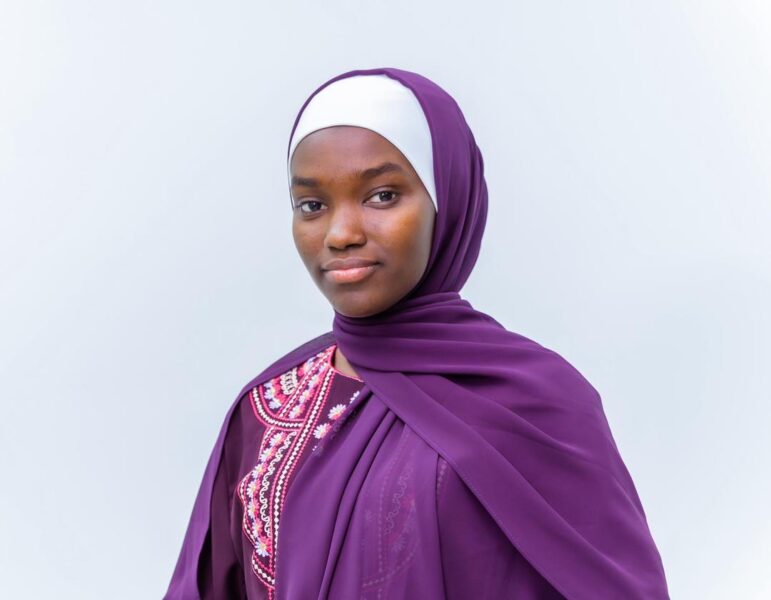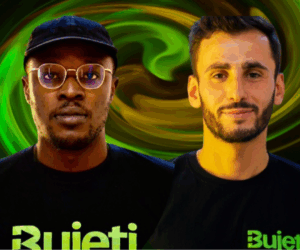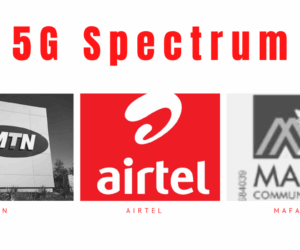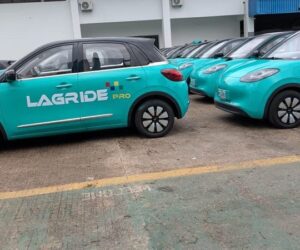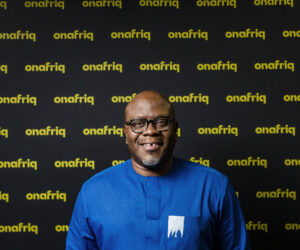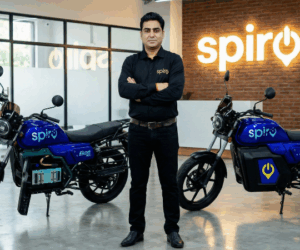For years, the narrative surrounding Northern Nigeria’s tech landscape has been dominated by conversations about potential, resource gaps, and a lack of female representation, particularly in high-level fields such as machine learning. Yet, this context of scarcity has only served to fuel a quiet revolution.
In communities where opportunities whisper instead of shout, and where the pathway to global innovation is distant, the journey of a young, ambitious woman can shift the entire narrative.
In an exclusive interview with Hauwa Yakubu Aliyu, the rising tech talent whose journey is redefining what’s possible for young women in the Northern region of Nigeria, she shared the origins of her professional ascent.
A computer science graduate from Usman Danfodio University and currently pursuing an MSc in computer vision at Bayero University, Hauwa’s tech career officially began under the 3 Million Technical Talents (3MTT) Initiative.
The 3MTT initiative is a programme by the Federal Ministry of Communications, Innovation & Digital Economy, aimed at generating a pipeline of technical talent in line with President Bola Ahmed Tinubu’s vision of creating 2 million digital jobs by 2025.

MTN Nigeria is a main partner and has committed N3 billion to support the 3MTT initiative. MTN’s contribution is essential for the programme’s success and scale. The company has provided funds for technical training for thousands of Nigerians directly.
Most notably, they committed N1.5 billion in data grants. This ensures that learners can stay connected to the internet and access training, removing a major barrier for people in remote areas. MTN also provides learning equipment, showing how private companies can help the government grow a talented workforce.
This partnership ensures that the opportunity to learn tech skills reaches young Nigerians everywhere.
Hauwa’s ambition was ignited even before the programme officially started. She recalled an orientation where a previous cohort winner mentioned receiving a laptop. More significantly, she heard the community manager lament that it had “been a while since anybody from Jigawa won.”
Determined to change that narrative, Hauwa set a goal for herself right there: to win a laptop from the programme. “I had it in mind that I was going to get a laptop from this program, and gladly I did,” she stated.
That initial drive culminated in a winning machine learning project for plant disease detection, utilising a convolutional neural network (CNN). Her success didn’t stop there; that same project propelled her from the local Knowledge Showcase to representing Nigeria at the prestigious Tech4Good Summit in China.
Below is an excerpt of my conversation with her:
Q: What sparked your interest in technology, and what was your motivation, specifically coming from Jigawa State in Northern Nigeria?
Hauwa: I have always been fascinated by how everything is becoming technology-driven. We are truly in the tech era.
But my passion also came from seeing a major gap. I noticed there were very few women in the tech field in the northern part of Nigeria, which is where I come from. That motivated me to be part of the change. I also observed that people from Jigawa State rarely participate in programmes or events, which pushed me to step in and take opportunities.
I even remember hearing at the 3MTT orientation that it had been a while since anyone from Jigawa won the knowledge showcase. Right then, I told myself, I am going to get a laptop from this programme, and I gladly did. That determination was my initial fuel.
Q: How did your academic background prepare you for the real-world opportunities that followed the 3MTT initiative?
Hauwa: My background from school gave me the theoretical foundation I needed. I knew most concepts in theory, but there was a significant gap between that knowledge and real-world practical application.
That’s exactly where the 3MTT programme stepped in. By the time I joined 3MTT, I was already familiar with the theory, so it helped me bridge that gap. It provided the structure to take what I knew and immediately put it into real-world projects and into practice.
Essentially, 3MTT was the catalyst that transformed my academic knowledge into tangible, marketable skills.
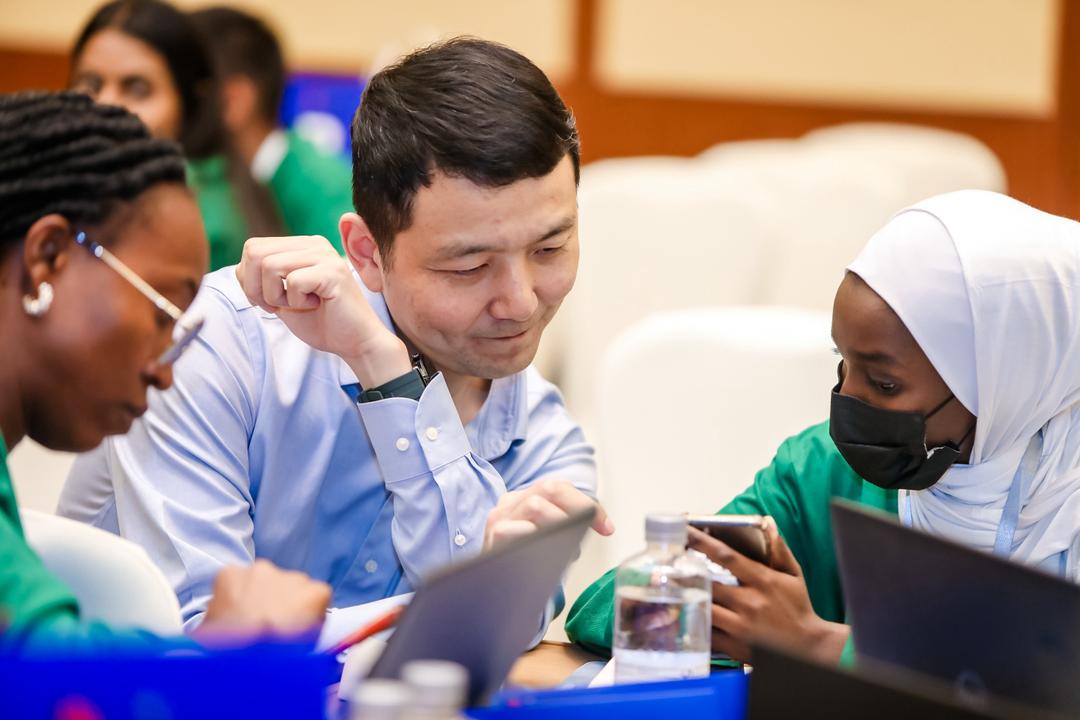

Q: How did the 3MTT experience particularly shape your career trajectory?
Huawa: The biggest gains for me were the exposure, the confidence, and the network I built, especially following the Tech4Good Summit.
The international mentorship I received from experts during the summit was a game-changer for me in the tech industry. It immediately expanded my horizons. Throughout the 3MTT programme, my facilitator was consistently encouraging and always available whenever I had a problem or challenge.
The combination of international exposure and consistent local support is ultimately what truly shaped my career trajectory.
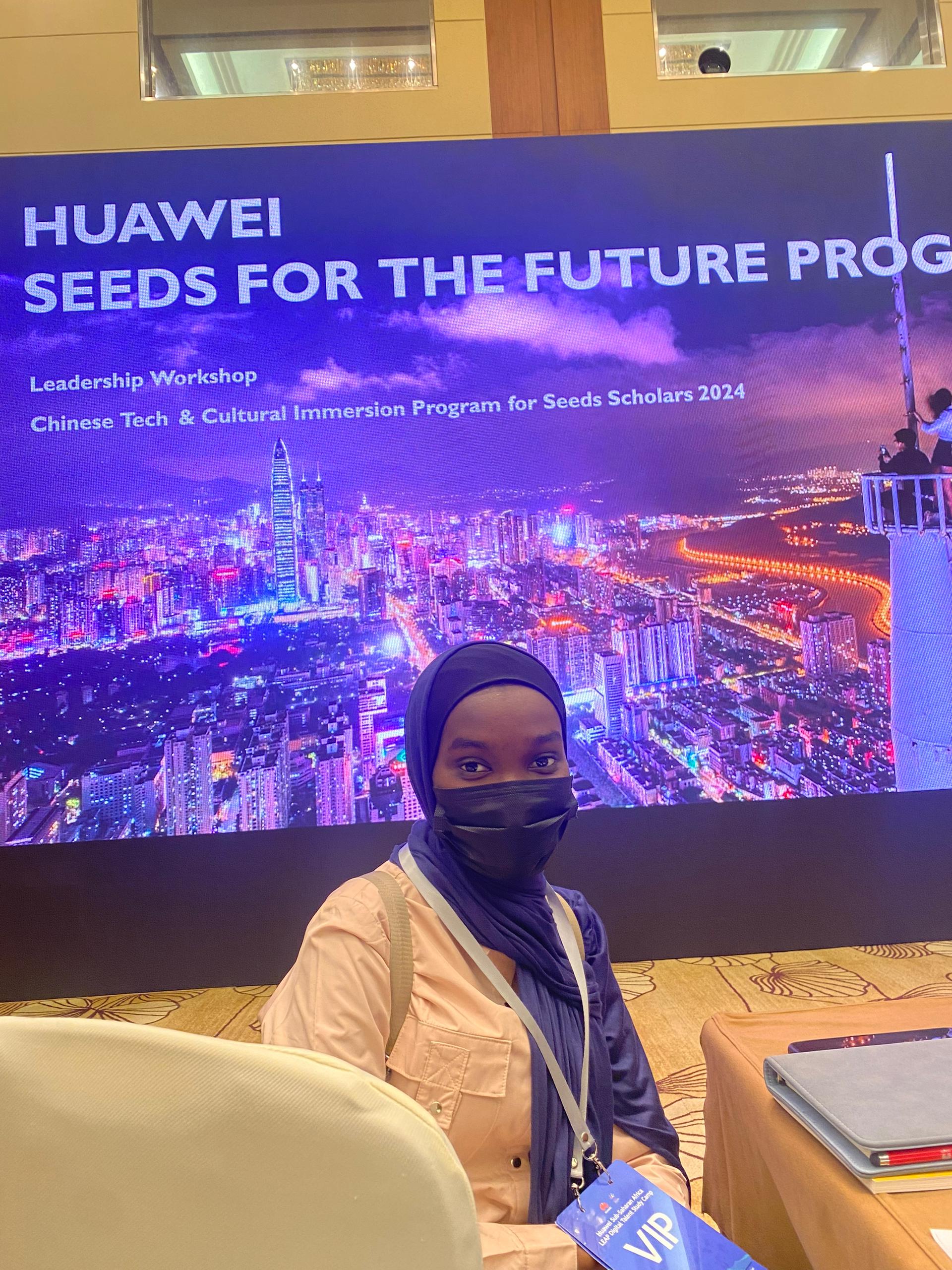

Q: Transitioning from the local knowledge showcase to a highly competitive international stage like the Tech4Good Summit in China must have presented some hurdles. Can you mention one or two key challenges you faced?
Hauwa: Surprisingly, the transition itself was relatively smooth due to the support we received.
We travelled with the learning team, including Mr Theophilus and the partnership lead, who guided us through the idea selection, pitching, and rehearsals. We also worked closely as a team, and each team was assigned an international mentor who provided guidance.
I would say the main challenge was the level of competition once we arrived. We went to the summit as fellows selected after throwing a challenge in Nigeria, and we hadn’t realised the magnitude of the event.
When we got there, we discovered that other participants were Huawei ICT national winners from their respective countries. They had already developed their projects.
In contrast, we had built our idea in less than five days, as we hadn’t fully known the structure of the competition. Essentially, we didn’t prepare as well as our counterparts because we didn’t fully anticipate the context. That was the crucial difference and the main hurdle.
Q: I’m also curious to know about the machine learning project you showcased at the initiative. Can you shed more light on what the project was all about and the positive impact of actually showcasing it?
Huawa: The project I showcased was Plant Disease Detection using a Convolutional Neural Network (CNN).
It was directly inspired by the struggles of local farmers to correctly and quickly identify diseases affecting their crops. The system provides early detection, which is crucial because it helps reduce crop losses and enables faster intervention for the farmers.


Q: Representing Nigeria on such a global stage is a significant achievement. How did it feel to present your project, and what was your thought process during that experience?
Huawa: Representing Nigeria was a moment of pride and great responsibility for me. I felt proud, my family was proud, my friends were proud, and my community manager was proud. It was bigger than just me; it meant showing that the youth, particularly from Jigawa, have viable ideas and global relevance.
It was a huge learning opportunity. I gained valuable insights from my global peers, seeing their innovations and learning about the supportive policies in their countries.
The recognition I earned was the most important part. Knowing that I represented Nigeria at the Tech4Good Summit adds credibility to anything I pursue now. It has made me a much more recognised individual, confirming that when I commit myself to something, I will achieve it.
Q: After these transformative experiences, I believe your view toward technology and the Nigerian environment has truly changed. What are your future ambitions, and do you have goals to empower other Nigerians?
Hauwa: My experience with 3MTT has honestly changed my perspective. I now believe that Nigeria’s greatest opportunity lies in the combination of its large youth population and technology.
We have so many talented young people here. I’ve realised that technology provides a scalable solution to critical challenges in sectors like agriculture, healthcare, and education.
My goal is to continue to leverage this knowledge. I learned that young people need proper training and reliable platforms, just like 3MTT, to showcase their ideas if they are to reach their full potential.
A lot of young people have the talent, but many are simply held back by limited resources or accessibility. My future ambition is to be part of the solution that addresses those barriers and ensures more Nigerians can access the same kind of transformative opportunities I did.


Q: What essential advice would you give young Nigerians, particularly those in underserved communities, who are passionate about technology and want to achieve success?
Hauwa: Don’t wait for the perfect resources. You must use what you have. Seek out certified training that builds both your skills and your credibility. I also advise young Nigerians to focus on solving local problems first.
Start small in your home or your community with issues that are scalable and meaningful. You don’t have to think of a problem that is bigger than you initially. If you successfully solve a local problem, people will naturally look to you to solve bigger ones.
Ensure to document and share your journey. Just like mine, it was documented and shared, and that’s what led to me being invited to major platforms. Platforms like TechNext value these success stories, so share yours.
Young people should also prioritise networking. Networking is crucial because it opens doors to bigger opportunities.
Finally, I always tell people: what is worth doing is worth doing well. If you commit to a training like 3MTT, take it seriously. You shouldn’t waste time; show up, put in the effort, and do it very well

